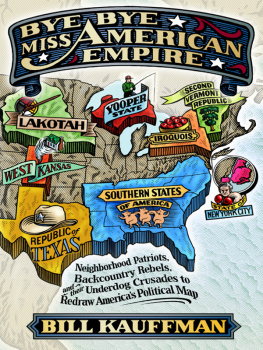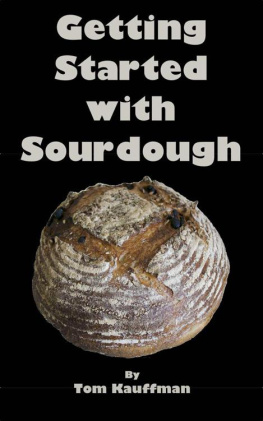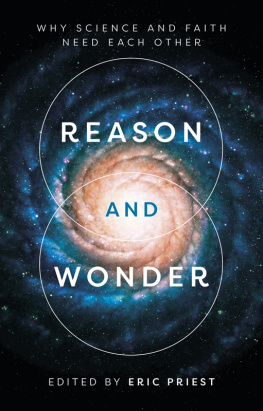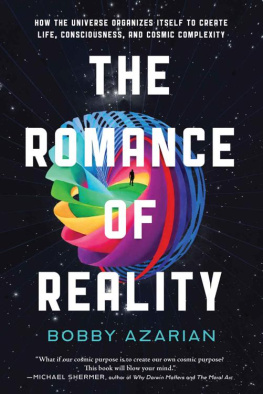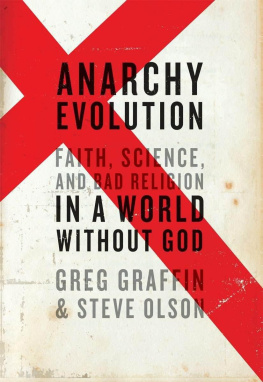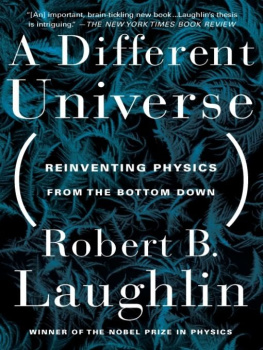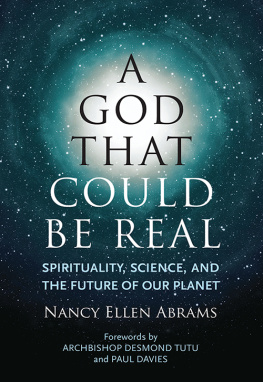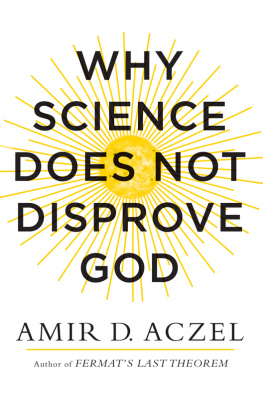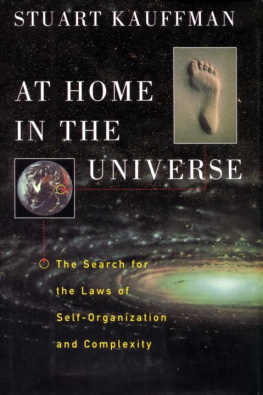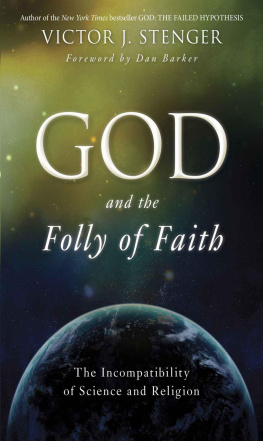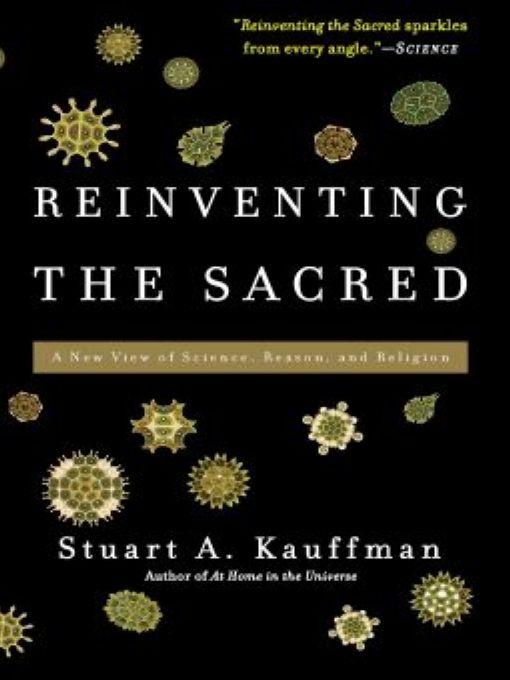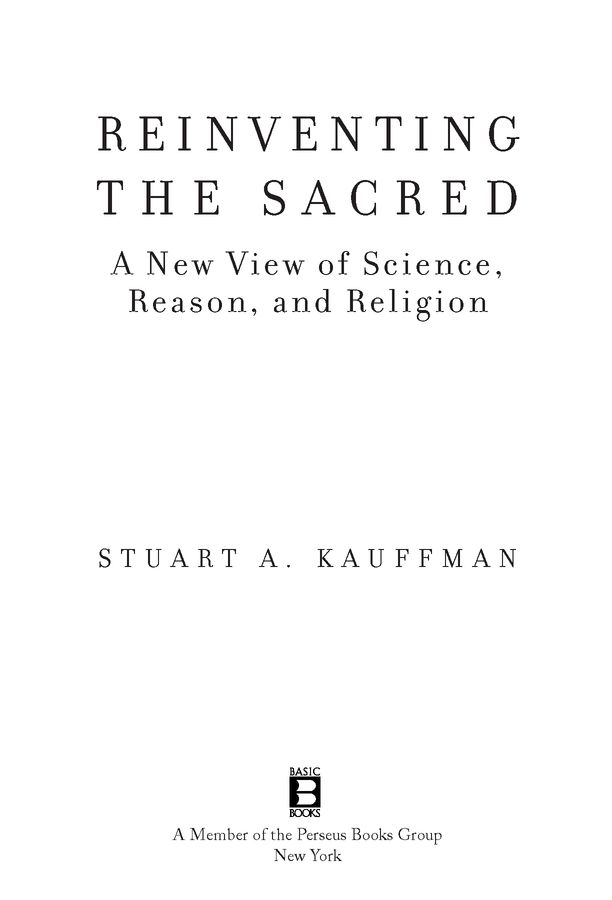Table of Contents
Praise for Reinventing the Sacred
[Reinventing the Sacred] sparkles from every angle as its author gallops through the relevant science, philosophy, economics, history, ethics, poetry, andwell, we had better use the word because Kauffman does: religion.... Bringing science and religion together globally in the way that Kauffman wishes is not going to be easyas other ecumenical movements have repeatedly foundbut it is necessary.
Science
Drawing on his extensive grasp of leading-edge thinking across a wide array of sciences, Kauffman makes a convincing case for the inherent irreducibility of fundamental aspects of biology, psychology, and even physics itself.... Well-written and rigorously argued.... For this meaningful contribution to the quest for an era of sustainability, atheists and believers alike should be most grateful.
Shift: At the Frontiers of Consciousness
Kauffman, an outstanding thinker who has devoted much reflection to complexity theory, offers some insightful perspectives on the physical world.... This is an interesting book that will generate much discussion.
Choice
[Kauffman] offers a fresh angle in the ongoing debates concerning creationism, intelligent design, and evolution.
Library Journal
Provocative.... Kauffman raises important questions about the self-organizing potential of natural systems that deserve serious consideration.
Publishers Weekly
This brilliantly argued book takes science into novel territory with clarity and conviction, and in Kauffmans inimitable style it challenges some scientific taboos. With this book a new biology is emerging, and with it a new culture.
Brian Goodwin, co-author of Signs of Life: How Complexity Pervades Biology
Reinventing the Sacred is a tour de force and a brilliant manifesto for a new emergence-based scientific worldview. But science alone will never be enough; humanity must also invent new categories of the sacred that speak to this naturalistic age. Stuart Kauffman courageously challenges fundamentalist pretensions on both sides, seeking to mold a new partnership of science and religious values... an epoch-making book.
Philip Clayton, author of Mind and Emergence
Stuart Kauffman has long studied the nature of complexity in biological systems. His new book shows in a startling way the power of these ideas in our understanding of ourselves and how we relate to the world around us. The sense of agency and of values, seemingly banished by the scientific viewpoint, are restored and enriched by a fuller perception of science deriving from biology as well as physics. Any readers views will be dramatically altered.
Kenneth Arrow, Nobel Laureate in Economics
This is a brilliant, new, comprehensive, scientific world picture, and it deserves a wide reading in the educated public.
Gordon D. Kaufman, Mallinckrodt Professor of Divinity, Emeritus, Harvard University
ALSO BY STUART A. KAUFFMAN
Investigations
At Home in the Universe
The Origins of Order
To the conversations we must have
PREFACE
The title of this book, Reinventing the Sacred, states its aim. I will present a new view of a fully natural God and of the sacred, based on a new, emerging scientific worldview. This new worldview reaches further than science itself and invites a new view of God, the sacred, and ourselvesultimately including our science, art, ethics, politics, and spirituality. My field of research, complexity theory, is leading toward the reintegration of science with the ancient Greek ideal of the good life, well lived. It is not some tortured interpretation of fundamentally lifeless facts that prompts me to say this; the science itself compels it.
This is not the outlook science has presented up to now. Our current scientific worldview, derived from Galileo, Newton, and their followers, is the foundation of modern secular society, itself the child of the Enlightenment. At base, our contemporary perspective is reductionist: all phenomena are ultimately to be explained in terms of the interactions of fundamental particles. Perhaps the simplest statement of reductionism is due to Simon Pierre Laplace early in the nineteenth century, who said that a sufficient intelligence, if given the positions and velocities of all the particles in the universe, could compute the universes entire future and past. As Nobel laureate physicist Stephen Weinberg famously says, All the explanatory arrows point downward, from societies to people, to organs, to cells, to biochemistry, to chemistry, and ultimately to physics. Weinberg also says, The more we know of the universe, the more meaningless it appears.
Reductionism has led to very powerful science. One has only to think of Einsteins general relativity and the current standard model in quantum physics, the twin pillars of twentieth century physics. Molecular biology is a product of reductionism, as is the Human Genome Project.
But Laplaces particles in motion allow only happenings. There are no meanings, no values, no doings. The reductionist worldview led the existentialists in the mid-twentieth century to try to find value in an absurd, meaningless universe, in our human choices. But to the reductionist, the existentialists arguments are as void as the spacetime in which their particles move. Our human choices, made by ourselves as human agents, are still, when the full science shall have been done, mere happenings, ultimately to be explained by physics.
In this book I will demonstrate the inadequacy of reductionism. Even major physicists now doubt its full legitimacy. I shall show that biology and its evolution cannot be reduced to physics alone but stand in their own right. Life, and with it agency, came naturally to exist in the universe. With agency came values, meaning, and doing, all of which are as real in the universe as particles in motion. Real here has a particular meaning: while life, agency, value, and doing presumably have physical explanations in any specific organism, the evolutionary emergence of these cannot be derived from or reduced to physics alone. Thus, life, agency, value, and doing are real in the universe. This stance is called emergence. Weinberg notwithstanding, there are explanatory arrows in the universe that do not point downward. A couple in love walking along the banks of the Seine are, in real fact, a couple in love walking along the banks of the Seine, not mere particles in motion. More, all this came to exist without our need to call upon a Creator God.
Emergence is therefore a major part of the new scientific worldview. Emergence says that, while no laws of physics are violated, life in the biosphere, the evolution of the biosphere, the fullness of our human historicity, and our practical everyday worlds are also real, are not reducible to physics nor explicable from it, and are central to our lives. Emergence, already both contentious and transformative, is but one part of the new scientific worldview I shall discuss.
Even deeper than emergence and its challenge to reductionism in this new scientific worldview is what I shall call breaking the Galilean spell. Galileo rolled balls down incline planes and showed that the distance traveled varied as the square of the time elapsed. From this he obtained a universal law of motion. Newton followed with his


